In preparation for the next Smackdown Team Experience is traveling back to 2000.
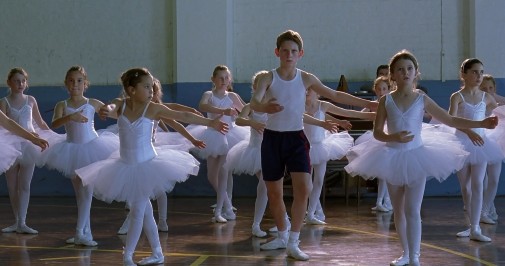
The ingrained sexism within Hollywood, in general, and AMPAS, in particular, has many consequences. One of them is the disparity of ages when men and women are recognized for their talents. Male actors tend to be rewarded later in life, while the industry often ignores women after they hit a certain age. You can even see this dynamic at play with underage actors. Only six male children have been nominated in Oscar history in comparison with over a dozen actresses.
Over the past two decades, several boy wonders have been ignored by the Academy, despite buzz in their years. There's Alan S. Kim (Minari), Jacob Tremblay (Room), Tom Holland (The Impossible), Thomas Horn (Extremely Loud and Incredibly Close), Freddie Highmore (Finding Neverland), and, of course, Jamie Bell. In 2000, the latter was definitely in the Best Actor conversation for the sleeper-hit Billy Elliot…
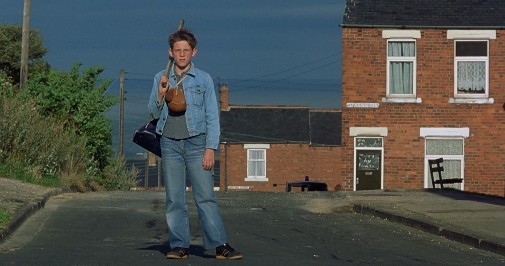
Stephen Daldry's debut feature is a sentimental triumph about a young English lad who dreams of dancing but feels like he must conform to societal expectations about what's appropriate for a boy. Set during the miners ' strike of the mid-80s, there's a perpetual cloud of socioeconomic anxiety looming over every step of the narrative. The movie's considerations about gender are only outmatched by its purviews on class and politics when it comes to the matter of incoherent undefinition. It's messy, often confused about such issues, without a clear perspective despite good intentions to spare. Nonetheless, I'd be lying if I said the flick doesn't work.
For all its inconsistencies, its facile mechanisms, Billy Elliot's heart is in the right place, and the power of its emotions goes a long way into making it sing a devastating tune about a boy's coming of age. Daldry knows his way around spiffy editing rhythms and an ebullient soundtrack, that's for sure. Most of all, he's a consistently great director of actors, as agile with consummate queens of the big screen as with youthful newbies. In Billy Elliot, Daldry guided fourteen-year-old Jamie Bell through his first cinematic role, creating a performance of expressive physicality and sublimated angst. Regardless of his age, Bell would have been an odd Best Actor nominee, though not an undeserved one.
The Academy, reflecting mainstream ideas of what constitutes good acting, tends to appreciate the sort of performances that either shine in closeups or indulge in portentous pontification. Fat tears and loud cries, big speeches, mighty roars, those are the sorts of things that win Oscar gold. Bell's Billy, on the other hand, is a creation that ultimately comes most alive when the camera gives him some distance and the dialogue stops altogether. It's an acting feat made for generous wide shots that frame the protagonist's gangly limbs and allow us to see how he moves through space, how he dances and runs, how he lives.
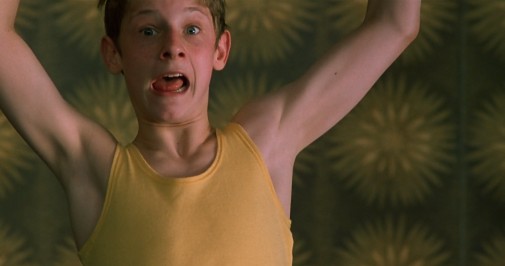
This is clear, right from the opening. Against a backdrop of dated wallpaper, Daldry shows us fragments of an energetic Billy. Shoulders, legs, thin arms, and a goofy face fill the screen until, at last, we get to see the entire actor. Bell flies through the air in a spastic jump, his pose a mixture of comedic playacting and a weird sort of grace. It's a stylized moment, an introduction that gives Billy a vast expanse and opportunity to be free. When we cut back to reality, the green walls have lost their apparent infinity. Everything feels cramped. Billy doesn't dominate this space anymore. Not as much as he is dominated by it, having to dodge furniture and find his way around the domestic jungle of the kitchen.
There's an undeniable nervousness to Bell's body language. It's not that his Billy comes off as overtly repressed or unassured, but that he has too much energy. It's like his body is still catching up with the boy's will, with his potential. Making breakfast is a dancing game, each gesture an opportunity to show off for an invisible audience. Billy's shenanigans are a compelling spectacle. The same can't be said about his puerile attempts at boxing. The disjointed effervescence of the opening salvos loses its joy when Billy's trying to force his body into something it's not made for. Fighting is beyond him, and every attempt at contradicting that nature results in goofy clumsiness.
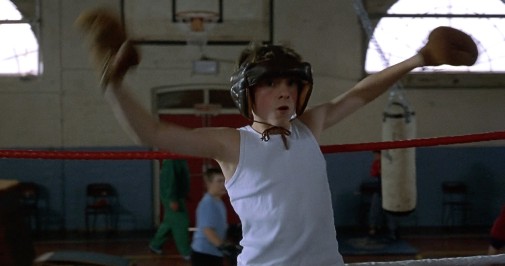
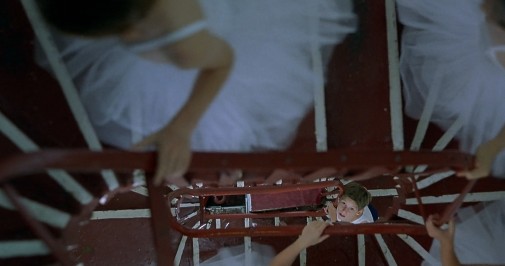
No wonder he's so instantly attracted to the ballet class going on in the corner of the gym. Dancing gives an order to the boundless energy he contains within him. It offers a conduit for emotion and motion to become one. Bell extrapolates the spark of interest, the taste of the forbidden, the euphoria of finding a passion, illustrating all those sentiments with a bullishly intense gaze. However, one needn't see his face to know that Billy Elliot has found his purpose. Even when awkward, his pirouettes and plies reveal passion, focus, the honest attempt at coordinating his lines into a semblance of harmony. His dancing failures might hurt, but that pain is still more treasurable than any boxing success would be.
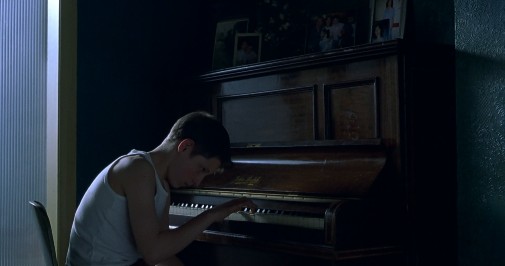
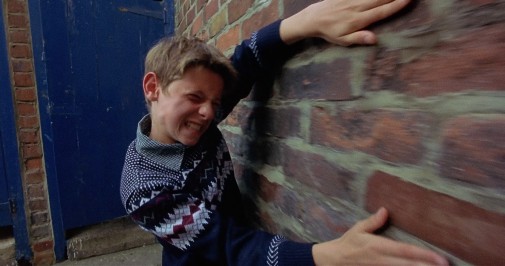
Such enthusiasm isn't without modulation or actorly skill. Bell doesn't merely explode with electrical motion at every opportunity. He allows us to see Billy's frustrations, the rage that bubbles under the surface of a miner's son, the sorrow of a motherless child. When in doubt, Billy's always ready to wear overt aggression like a mask, a shield that protects his vulnerability. The little thespian also understands the need for soft expression, for the precise evocation of an underplayed closeup. Notice the tenderness he displays towards the unrequited affections of a queer friend, the devotion he shows to an old piano. Jamie Bell's Billy Elliot might be a characterization made for the wide shot, but he's no slouch when the camera comes nearer, negotiating the demands of kitchen sink drama like a seasoned pro.
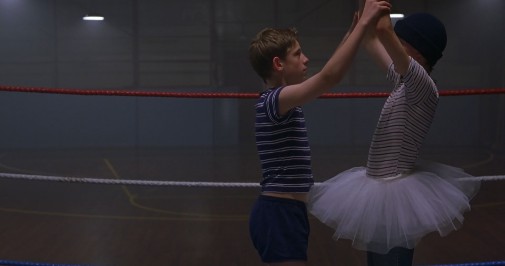
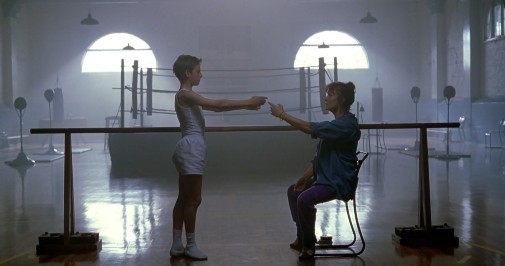
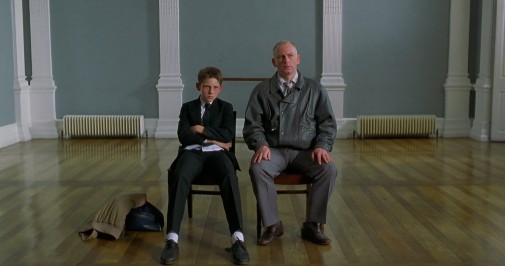
For these last notes, I'd like to mention two aspects of Bell's performance that elevate it above the work of many a prodigious child star. First, there are the careful differences in how Billy relates to the adults in his life and the contradictions inherent to each personal dynamic. With his father, there's filial fear tempered with a deep need for love, for comfort. With his dance teacher, another sort of camaraderie is evident, one that speaks of class antagonism and adversarial friendship. Secondly, one must commend how Bell never topples into over-articulate preciousness. His Billy is always a real kid before he's a movie hero. Even when asked to deliver a tear-jerking explanation about what it feels like when he's dancing, the actor trips over himself, looks around unsteadily like the frightened kid that Billy is.
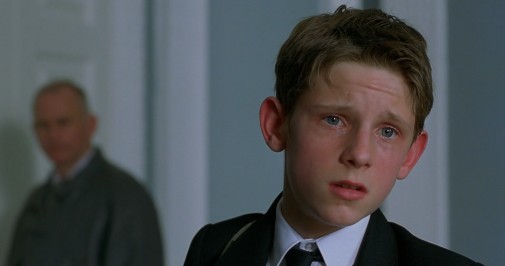
Jamie Bell won the BAFTA for Best Actor, a British Independent Film Award, and a slew of critics' honors for most promising newcomer. Furthermore, he got a SAG nomination, putting him on the clear path towards Oscar gold. On nomination morning, however, Billy Elliot missed a couple of crucial nods. It was nominated for writing, directing, and Best Supporting Actress, probably finishing in sixth in both Best Picture and Actor. Instead of Bell, AMPAS chose to honor Javier Bardem in Before Night Falls, Russell Crowe in Gladiator, Tom Hanks in Cast Away, Ed Harris in Pollock, and Geoffrey Rush in Quills. Crowe would win and, while this is a solid lineup, Bell's absence is keenly felt.
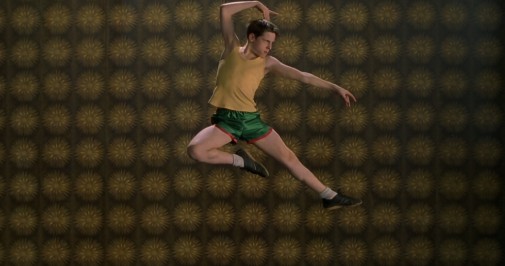
Billy Elliot is available on all of HBO's various streaming services.